
NPS Photo For People With...The National Park Service is committed to making Mount Rainier National Park more accessible. Many facilities are over 100 years old and accessibility is not always ideal. Through an on-going self-assessment and transition plan, Mount Rainier National Park has identified and is working toward eliminating barriers to accessibility. Extra obstacles may be encountered because of the remote, wilderness nature of the park. Facilities described as accessible do not necessarily comply fully with federal standards and some accessible facilities are not marked with the international symbol. Visiting the ParkDrivingAt Mount Rainier National Park, the elevation of the road ranges from 1,880 feet (573m) to 6,400 feet (1950m). The roads are winding and steep, and weather can change rapidly. Check the conditions before visiting. Cell ServiceThere is very little cell service throughout the park; GPS is not reliable. Paradise is the only area with consistent coverage. Prepare by downloading offline maps or using paper maps. Check the road and trail conditions and review any alerts before you come. Access PassThe Access Pass is a free, lifetime, non-transferable pass for US citizens or permanent residents with permanent disabilities.
To order an Access Pass online, upload documentation of permanent disability and residency or citizenship. To get an Access Pass in person, find a location with available passes. Printable Mount Rainier Accessibility GuideTwo versions (one in large print) of the Mount Rainier Accessibility Guide are available for download and printing:
NPS Mobile AppThe NPS App is accessible and includes alt text for images. Mount Rainier National Park does not have cell service in many areas; download the NPS App prior to coming to the park. Features available include:
Park BrochureThe park brochure is available to download in a variety of formats, including audio description and braille. Service AnimalsUnder the Americans with Disabilities Act, service animals are allowed on trails and in park facilities if the animal has been trained to do work or perform tasks for the benefit of an individual with a disability. Therapy animals providing emotional support do not qualify as service animals. Pets are not allowed inside buildings, on trails, or in the backcountry. Learn more about service animals in national parks. For Your HealthAir QualityThe air resources management program at Mount Rainier includes monitoring, research, and regulatory interaction with local, state and federal agencies. Long-term monitoring programs include monitoring for gaseous pollutants such as ozone, visibility impairment, and atmospheric depositions. For current air quality status visit the air quality webpage. Medical InformationCall 911 for emergency medical or law enforcement assistance or to report accidents or injuries. Nearby HospitalsClosest to the Nisqually Entrance: Morton Hospital (Arbor Health) Good Samaritan Hospital Closest to the White River Entrance: St. Elizabeth Hospital Closest to the Stevens Canyon Entrance: Arbor Health Packwood Clinic (Urgent Care) A variety of medical facilities and urgent care centers are also located in nearby cities. Accessibility in Park Areas of Interest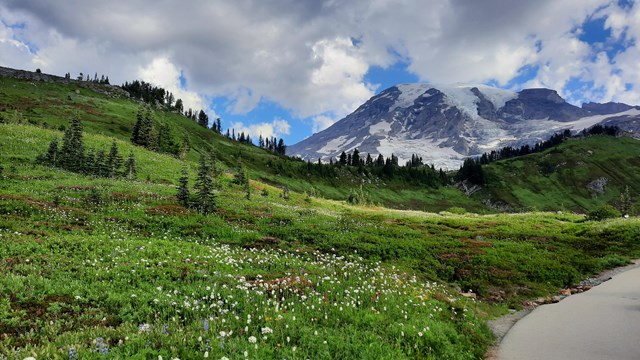
Accessibility at Paradise
Learn more about accessibility in the Paradise area. 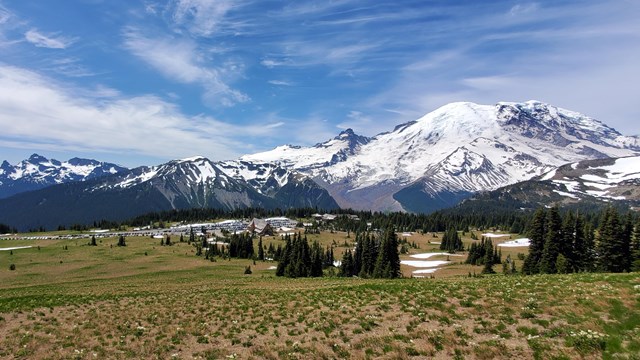
Accessibility at Sunrise
Learn more about accessibility at the Sunrise and White River areas. 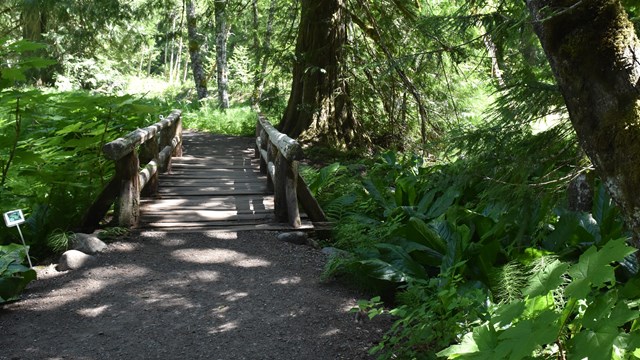
Accessibility at Longmire
Learn more about accessibility at Longmire and Cougar Rock. 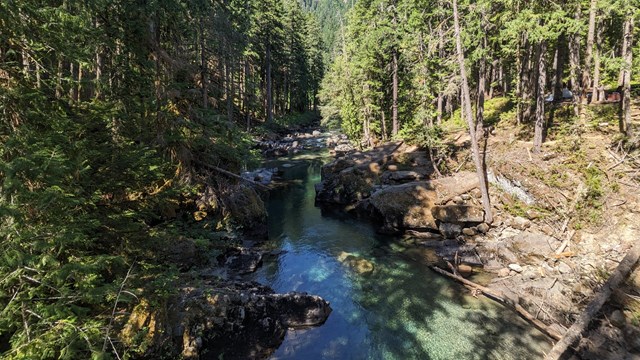
Accessibility at Ohanapecosh
Learn more about accessibility in the Ohanapecosh area. 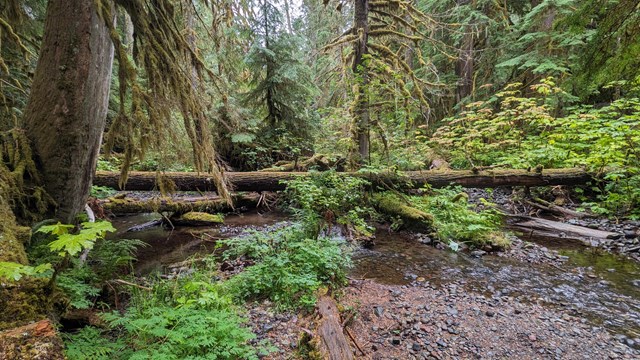
Accessibility at Carbon and Mowich Lake
Learn more about accessibility at Carbon River and Mowich Lake. Federal Relay ServiceVoice: 1-866-377-8642 Accessibility InformationFor accessibility-related questions or concerns, please email. |
Last updated: October 18, 2024
